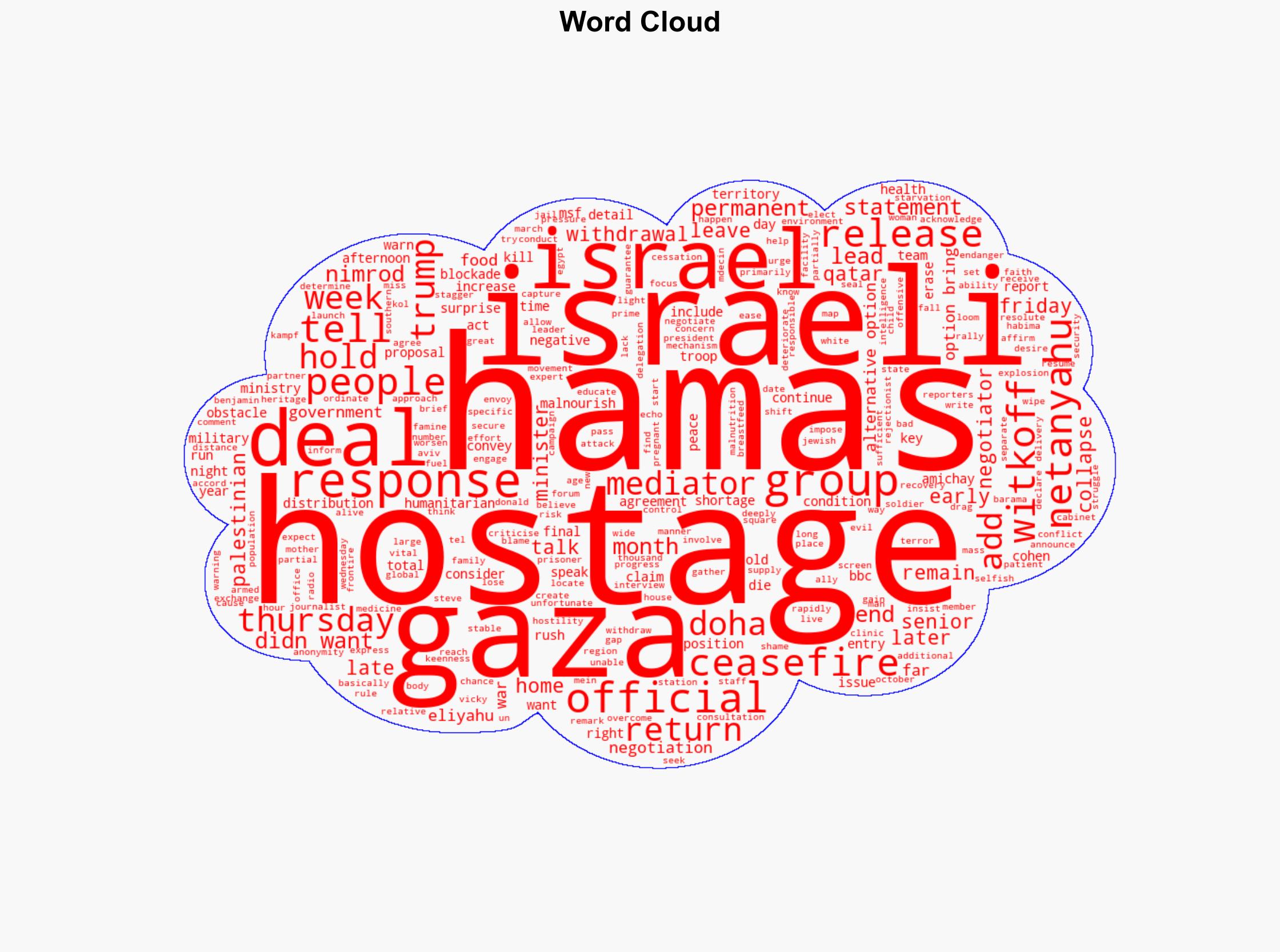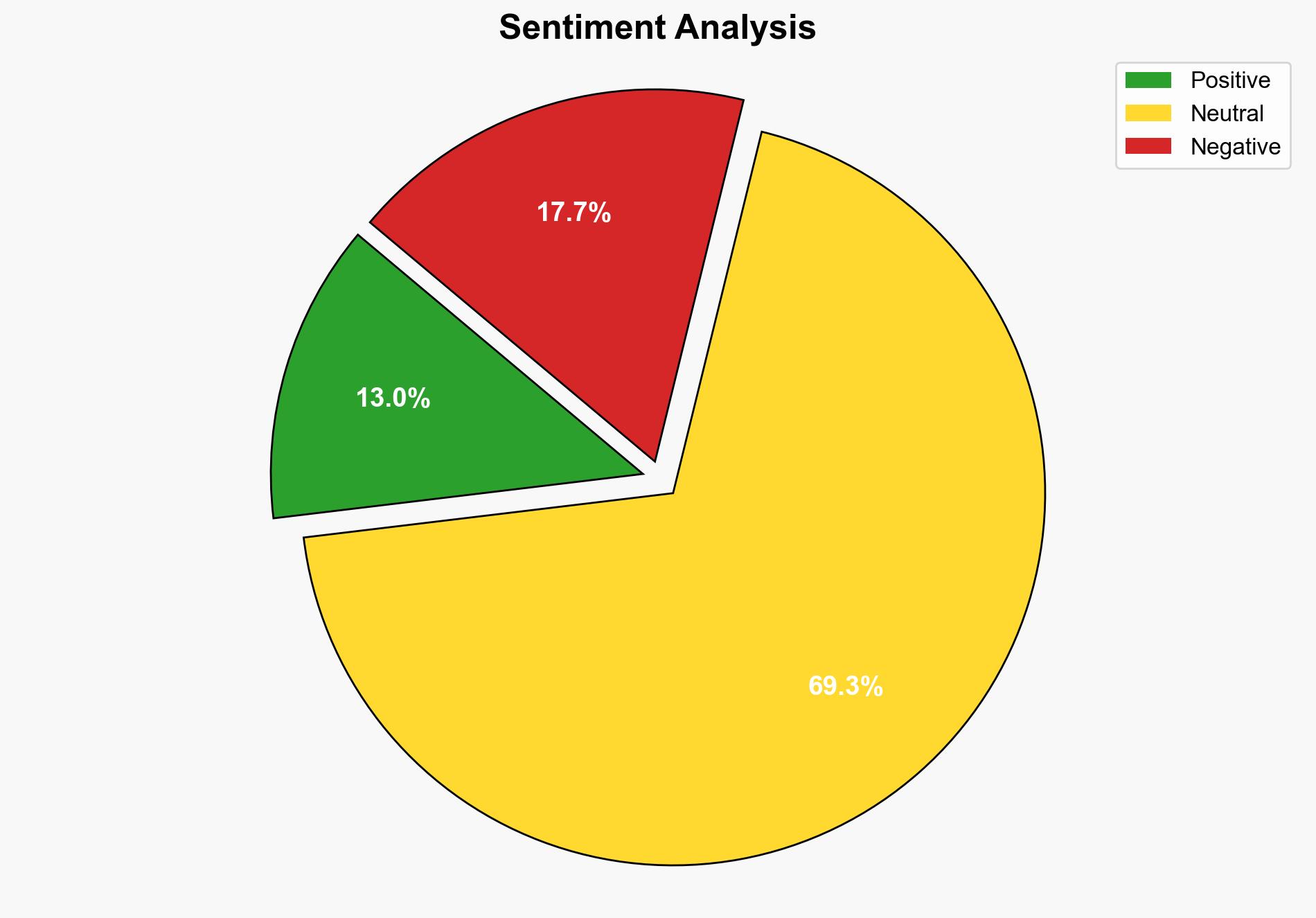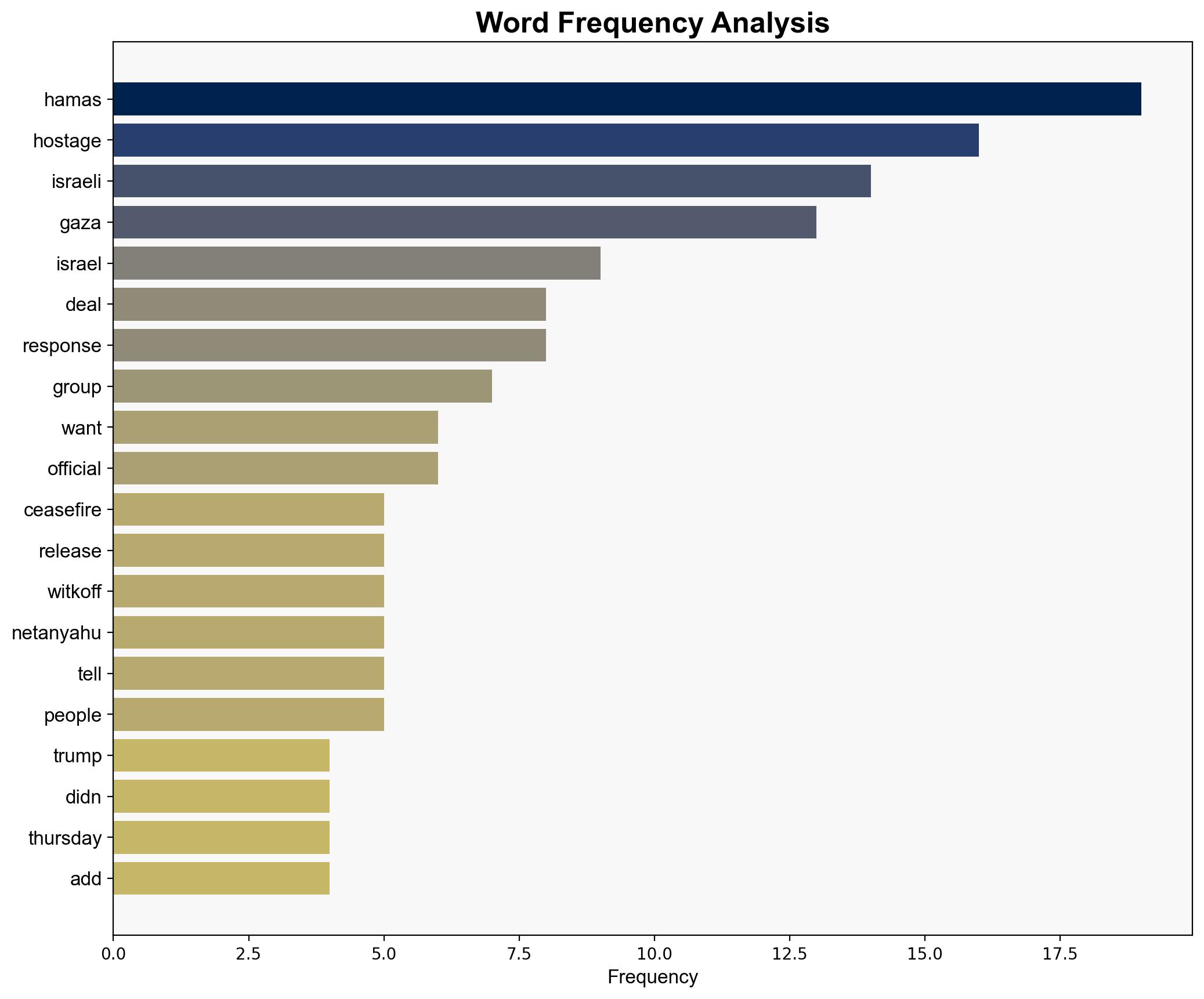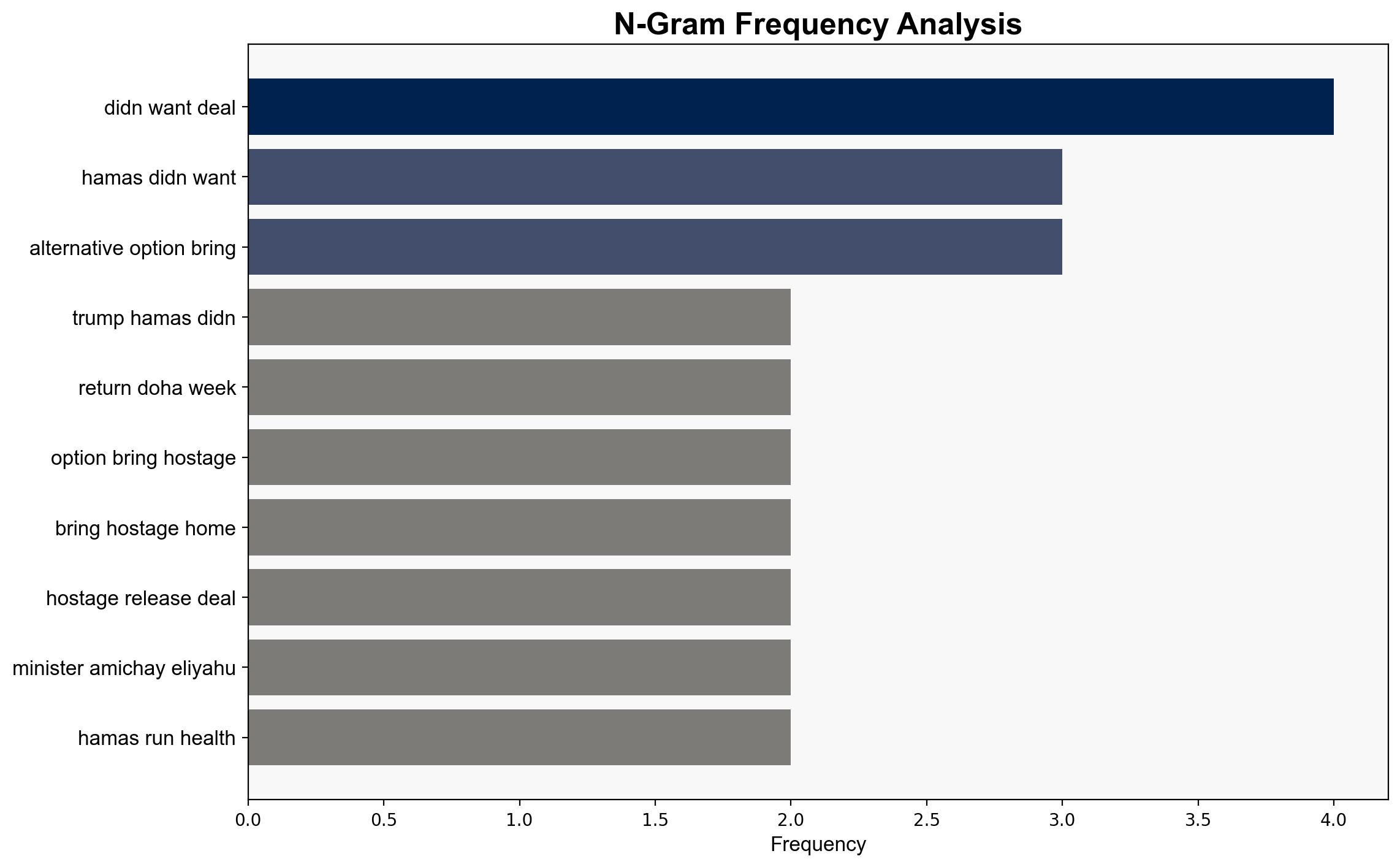Israel and US leave Gaza ceasefire talks in Qatar – BBC News
Published on: 2025-07-24
Intelligence Report: Israel and US leave Gaza ceasefire talks in Qatar – BBC News
1. BLUF (Bottom Line Up Front)
The most supported hypothesis is that the breakdown in ceasefire talks is primarily due to Hamas’s strategic positioning rather than a genuine lack of interest in peace. This assessment is made with moderate confidence. It is recommended that diplomatic efforts be intensified with alternative mediators and back-channel communications to address underlying issues and facilitate a renewed negotiation process.
2. Competing Hypotheses
Hypothesis 1: Hamas is genuinely uninterested in a ceasefire, prioritizing its strategic objectives over immediate peace. This is supported by their late proposal and perceived lack of engagement in the talks.
Hypothesis 2: Hamas’s actions are tactical, aimed at leveraging negotiations to gain concessions, such as the release of Palestinian prisoners, rather than an outright rejection of peace. This is supported by their expressed surprise at the negative statements and their stated willingness to continue negotiations.
Using ACH 2.0, Hypothesis 2 is better supported as it accounts for Hamas’s strategic behavior and aligns with their historical negotiation tactics. The surprise expressed by Hamas and their willingness to continue talks suggest a tactical maneuver rather than outright rejection.
3. Key Assumptions and Red Flags
Assumptions include the belief that Hamas’s public statements reflect their true intentions and that both parties are negotiating in good faith. A red flag is the lack of clarity on the specific demands and concessions discussed, which could indicate hidden agendas or miscommunication. The absence of a clear timeline for Israeli negotiators’ return to Doha is another concern.
4. Implications and Strategic Risks
The collapse of talks could lead to increased hostilities, impacting regional stability and potentially escalating into broader conflict. Economically, prolonged conflict could strain resources and affect international aid efforts. Geopolitically, failed negotiations may shift alliances and influence external actors’ involvement. Psychologically, the ongoing uncertainty could exacerbate tensions among civilian populations.
5. Recommendations and Outlook
- Engage alternative mediators, such as European or UN representatives, to facilitate renewed dialogue.
- Enhance intelligence gathering to better understand Hamas’s internal dynamics and objectives.
- Scenario Projections:
- Best Case: Successful renegotiation leads to a temporary ceasefire and gradual de-escalation.
- Worst Case: Talks remain stalled, leading to increased violence and regional instability.
- Most Likely: Intermittent negotiations with sporadic violence as both sides seek advantageous positions.
6. Key Individuals and Entities
– Donald Trump
– Benjamin Netanyahu
– Steve Witkoff
– Hamas representatives
7. Thematic Tags
national security threats, counter-terrorism, regional focus, diplomatic negotiations




